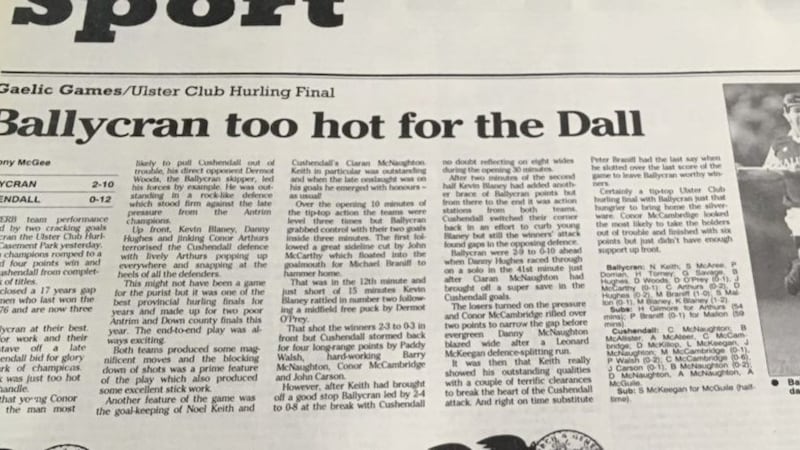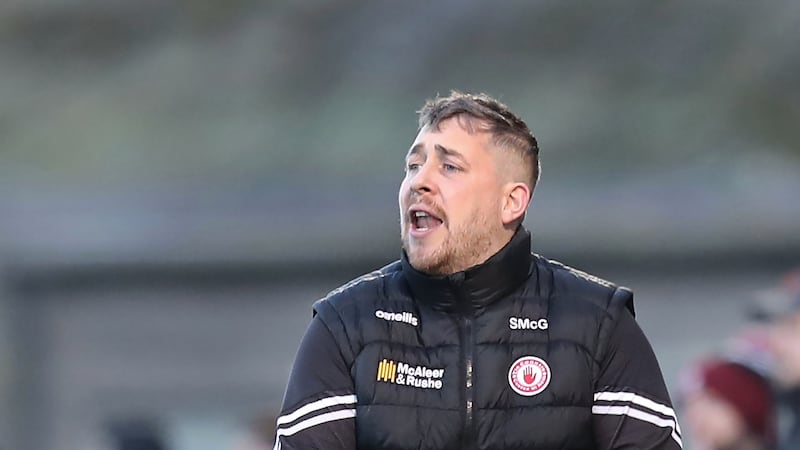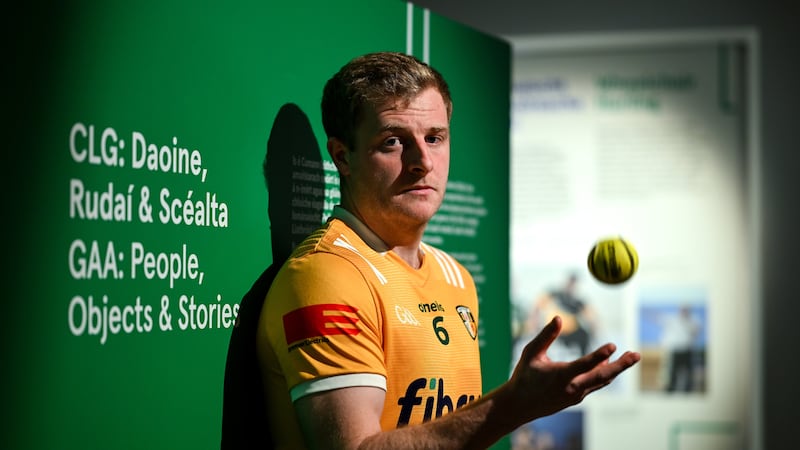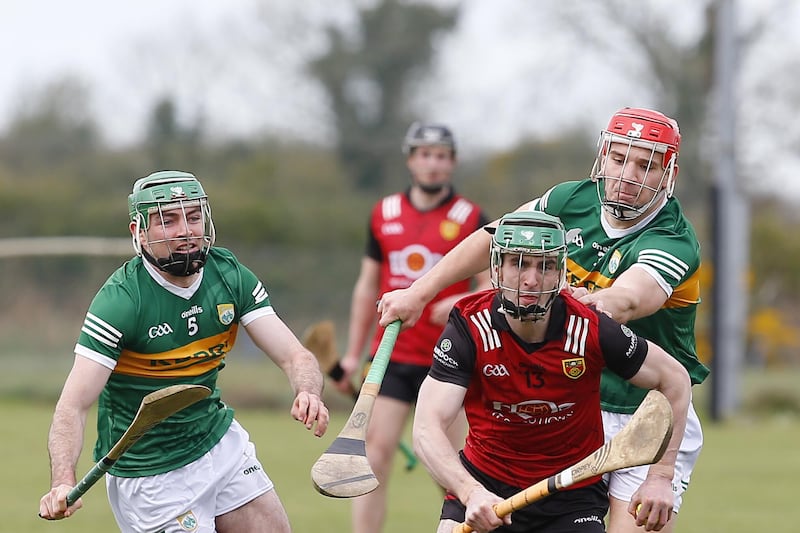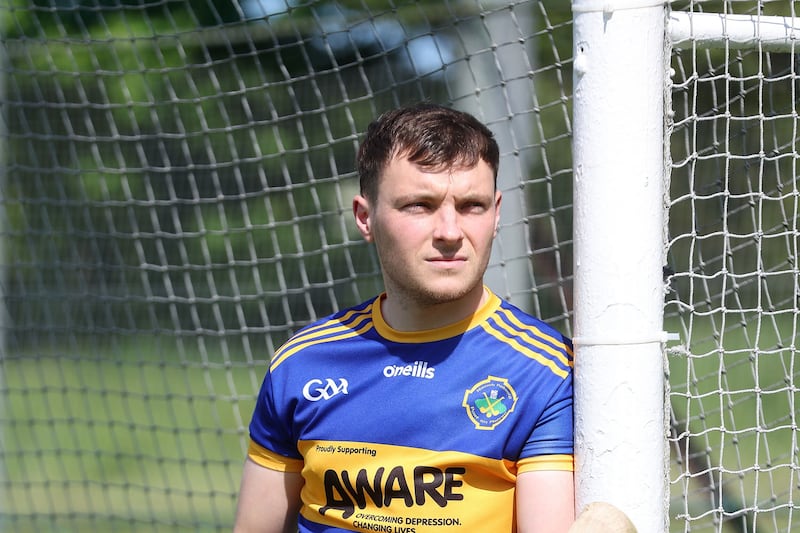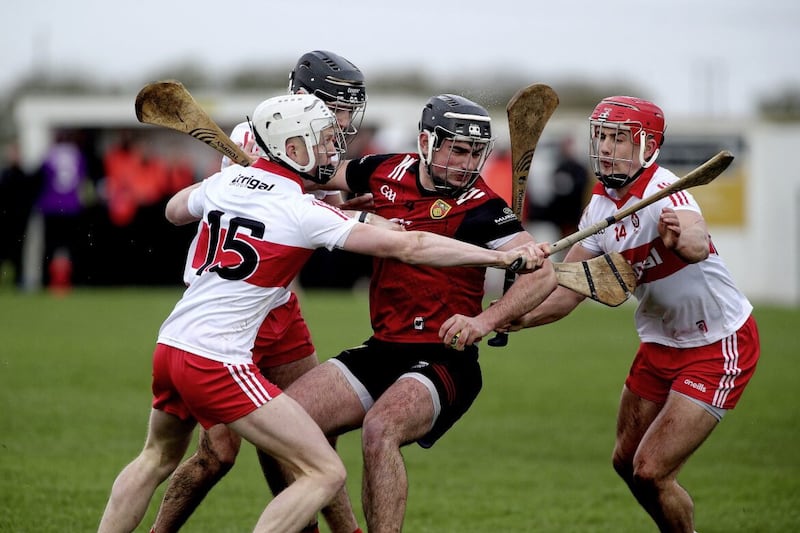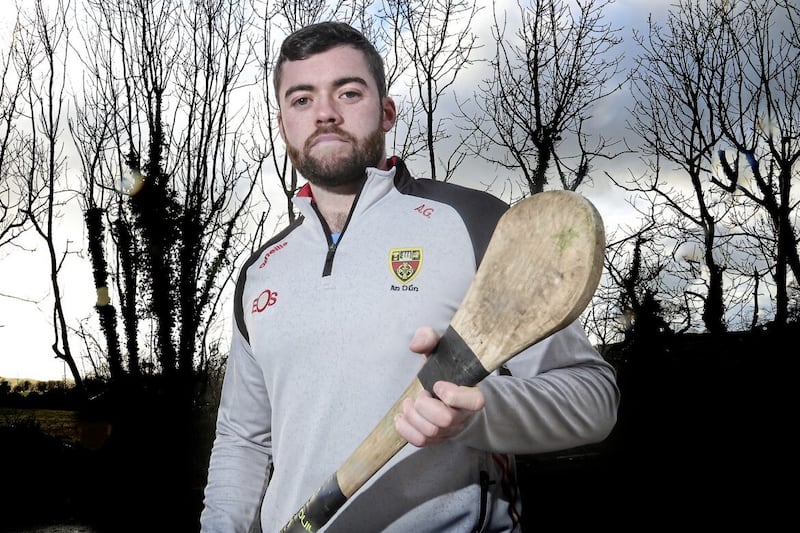SOME Ardsmen hurl their whole lives for a taste of Ulster championship glory, many more hurl their whole lives and never get one.
Tomorrow opportunity comes knocking for Ballycran, the Down outsiders who take on Cushendall’s Ruairi Og in the provincial decider and, if they take it, they’ll savour a feeling that will last their lifetime.
Dermot Woods knows how it feels.
“There’s nothing like it,” he says.
Woods is one of only three men from Ballycran to have lifted the Four Seasons Cup – the biggest prize in Ulster club hurling – and that unforgettable day in 1993 came after plenty of near misses.
He joined the senior panel in 1978 – missing out on Ballycran’s first two Ulster wins in 1974 and 1976 - and soldiered on through thick and thin for 15 years before his moment came ’93.
A quarter-of-a-century ago the Down champions faced-off against three in-a-row chasing Cushendall as rank underdogs. Then, as now, nobody gave them a prayer but it’s not the size of the dog in the fight, it’s the size of the fight in the dog.
From the moment the sliothar was thrown in, Ballycran snapped at the ’Dall’s ankles, turned over the ball and score followed score as they hammered out a famous win.
A fortnight ago that same spirit was evident as Ballycran’s class of 2018, including Dermot’s son Conor and the sons of many other men from ’93, dethroned reigning Ulster champions Slaughtneil to book a return to the Ulster decider.
Cushendall are the opposition again tomorrow and the Antrim men are favourites again. Of course, that’s not a surprise for Dermot.
“Throughout my playing days we never had a lot of success against the north Antrim teams, even in the league,” he says.
“But we wanted to be playing against the better teams so even though you weren’t winning every week it never deterred you from coming back.
“It was love of the game. You play away your whole career and there are more lows than highs but just one day like ’93 can make up for 20 years of ups and downs.”
There were three Ulster final losses in Woods’ first four years as a senior hurler and three more defeats followed throughout the 1980s as Antrim teams dominated the provincial landscape.
“We got to finals and semi-finals right through the 80s but we came up against very strong Ballycastle teams, they were always that bit stronger than us,” recalls Dermot whose uncle Charlie McMullan (his mother’s brother) captained the Down team to the junior All-Ireland title in 1964.
Cushendall had beaten their Ards peninsula Portaferry and Ballygalget in the previous two deciders and the Glensmen – even without the suspended Terence McNaughton - were expected to complete a first-ever Ulster treble.
“Our build-up to the game was low key,” says Woods.
“We knew we had a mountain to climb but that never deterred us from trying.
“We knew we were a decent team. Recently we had a reunion for the 25th anniversary and when I sat down and looked at the players that were on that team… we had a strong team.
“Looking back, you don’t win an Ulster with a bad team.”
Ballycran had won a four in-a-row in the Down championship between 1984 and 1987 but a changing of the guard at senior level meant that a rut set in until the early 1990s.
The introduction of a handful of talented youngsters including Mickey and Kevin Blayney, Michael and Peter Braniff and current manager Gary Savage – “he was ready to take anyone on and he had outstanding ability at that age” – breathed life back into the side.
“We had a tough run to get out of Down in ’93,” Woods recalled.
“We played Ballygalget and the final went to a couple of replays. Looking back, those games stood by us going into the final.”
With Woods patrolling the half-back line and picking up the Cushendall talisman Conor McCambridge, there was an intensity and aggression about Ballycran’s set up from the start of the decider.
“I was trying to keep everything as tight at the back as I could,” he explains.
“I was looking to hunt the ball down and snuff the life out of the opposition I suppose. It was just basic things.
“We had a simple-enough gameplan, we would have worked the ball from the half-back line up through the midfield and got it into the forwards and look for them to get that bit of space to do something.
“We wanted to get quick ball into them to give them the chance to have the edge. It was simple but effective that day.”
The sides were level three times in the opening 10 minutes but Ballycran surged ahead with two goals inside three minutes. The first came when John McCarthy thumped a sideline cut into the square where Michael Braniff was waiting to hammer the sliothar into the Cushendall net.
Then Kevin Braniff was on the end of Declan O’Prey’s free and suddenly the Down men had a 2-3 to 0-3 lead.
“We were going at it right form the start and when Kevin got the goal we knew things were going well,” recalls Woods.
“But at the same time you’re always waiting on the backlash coming.”
The lead was down to four at the interval but Blayney added two early points when the action resumed. With their Ulster crown slipping away, Cushendall threw everything forward but, with Noel Keith (father of current goalkeeper Steven) stood tall between the posts, Ballycran held out to win 2-10 to 0-12.
“It was the same as the semi-final this year,” Woods reflected.
“Everybody expected a Slaughtneil backlash but they didn’t allow it to come
“Whenever Slaughtneil did start to edge back at us, we were able to go on and pick another score off.”
The relief the final whistle brought instantly turned to joy as players and supporters met on the pitch to celebrate a famous victory.
Cushendall’s Terence McNaughton looked on enviously after being red-carded in the last minute of the Antrim final. A quarter-of-a-century on he has no complaints.
“I was sitting in the stand and, as I told Gazza (Gary Savage), that’s the reason Ballycran won it,” he joked.
“No, on the day we were beat by the better team, they were far hungrier – that’s the reality. They deserved it on the day. Ballycran is a great club, with a great tradition and it’s full of men with character.
“John McCarthy, Danny Hughes, Gazza, Dermot Woods… all good hurlers. That Ballycran team was full of good hurlers and strong characters. There was a manly thing about them.”
As McNaughton and the Ruairi Ogs headed north to Cushendall for the post mortem, Ballycran traveled south to Kircubbin with the Four Seasons Cup on the bus.
“It was just pure celebration,” says Woods.
“It was a lifetime of toil and sweat. We all consider ourselves very fortunate to have won an Ulster final. They are slim margins, you could play your whole career and never get there.
“There are great hurlers from the Ards who have never got there, you need everything to go right on the day for you.
“We all went back to the club that night. There were great celebrations and as players we were walking 10-foot tall, you just felt totally elated. There’s not a feeling like it.”
Twenty-five years on the sons of the men of ’93 will carry the hopes of the club onto the Athletic Grounds tomorrow. Alongside Conor Woods and Stephen Keith, there are Gary Savage’s sons Liam and Phelim (the teenager who went toe-to-toe with Slaughtneil’s Chrissy McKaigue in the semi-final) and Danny Hughes’ boys Michael (the team captain tomorrow) and Patrick.
“That’s the way it goes down here,” Woods explains.
“Children follow their parents. James Coyle has a wee boy there, he’s no age yet but he’s at every match and he’s decked out in the gear and he has his own hurl.
“That’s the way it will keep repeating.
“There are so many similarities between 1993 and now in so many areas it’s astonishing.
“Conor is like the rest of the boys there; they love the game and they do their best to be the best they can. Sometimes it works for them, sometimes it doesn’t but it doesn’t stop them coming back for more.”
You won’t see many foreign surnames in the Ards peninsula because there aren’t many jobs to attract migrant workers to the area. Hurling plays a vital role in the region and the joy it brings is celebrated, first and foremost, by the club involved but also by their neighbours.
“It lifts the whole area, the whole community,” said Woods.
“There are people who get joy out of it who don’t have anybody playing or who maybe played the game years ago and aren’t about but still their heart is in their club. That’s the way it works.
“After a championship final you look at people, people you haven’t maybe seen for months or years, and just the pure joy that winning something like that brings to the whole community.
“Of course there’s always rivalry and the parochial side but in general we support each other. The last time Portaferry won Ulster (they beat Cushendall in the 2014 final) we went up to the match hoping to see them winning.
“They had edged us by a point in a very tight championship game that year and we went up to support them because that reflects on the status of Down hurling. That’s what it’s all about.”
Woods, who lined out for Down in two spells, first in the 1980s and then from 1992 to ’95 played had his time as manager of Ballycran. He rarely misses a match but admits that watching: “Doesn’t get any easier.
“I’m not a great spectator but I’ll go and I’m looking forward to it. I hope it’s a good day for hurling.”
Is he confident? Optimistic is probably a better word. Blood, sweat and tears, broken hurls and aching limbs are par for the championship course. Tenacity in defence, creativity in midfield and composure in front of the posts will decide the outcome and “the hurling gods” will have their say in it too.
“There is nothing more I would love to see than this group of players winning an Ulster title,” he says.
“You go through your life and you’re involved in hurling and you just hope for a day like this. I’m old enough to know now that these days don’t come around every year.
“What I wouldn’t give for this group of players to win? If there’s anything I could do, I would do it.”
Would he sacrifice his own medal to see his son win one of his own tomorrow?
“At this stage of my life I probably would, aye,” he says.
A shot at glory doesn’t come around that often. Conor has to grab it, just like Dermot did all those years ago.
